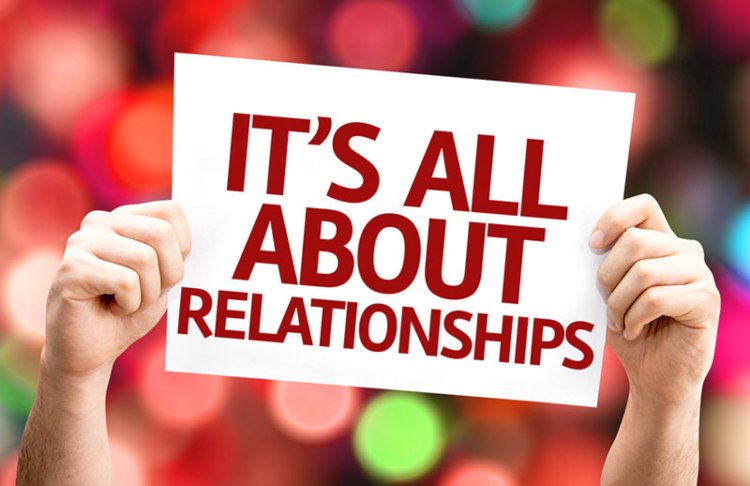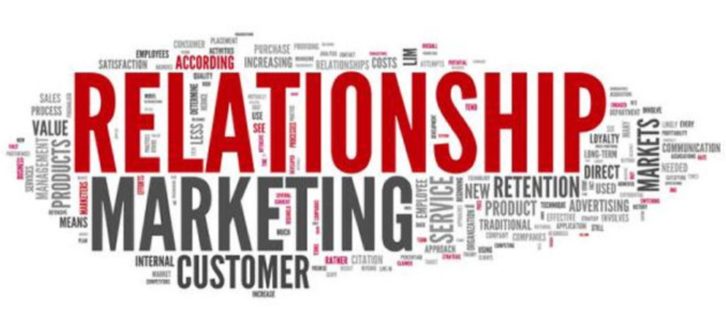Business owners tend to focus on widening their customer base and increasing brand awareness, casting their net far and wide.
Isn’t this the ultimate goal of marketing strategy?

The facts tell a different story:
- If a customer has purchased once from you, they’re 60% more likely to make one more purchase. However, there is only a 20% chance that new arrivals on your website will buy anything.
- Finding new customers is 5 times more expensive than retaining old ones
- Businesses can lose millions of dollars in a year when customers move away and the world-wide estimate of the value of a lost customer is about $243
- It is 16 times as expensive to build relationships with new customers than to nurture loyalty in existing ones
- A 5% increase in customer retention can boost revenues by between 25-95% depending on the nature of business
- Satisfied customers are more likely to refer their friends and give good reviews on social media
- 97% of customers who have had a poor experience with your brand will share it with others, while 87% share good experiences.
The bottom line is that maintaining long term relationships with customers makes more financial and business sense than scouting for new ones.
This strategy is often more critical to the survival, health and growth of your business.
It’s called Relationship Marketing .
What Is Relationship Marketing?
The term was first used in 1995 by the American Marketing Association and is “marketing with the conscious aim to develop and manage long-term, trusting relationships with customers, distributors, suppliers and/or other parties in the marketing environment.”

When you prioritize building connections and long-term relationships in contrast to simply focusing on sales, it signals a focus on relationship marketing.
The aim is to create engaging, personalized interactions in an eco-system of emotional awareness.
This strategy helps you to create and sustain conversations with stakeholders, understand and analyze their issues and to provide viable solutions for these.
The main aim is to instill trust in so that they continue to do business with you.
Trust and satisfaction can be translated into real revenues. Engaged customers tend to be more willing to test new offerings, they’re 5 times more likely to buy again from you and 4 times more ready to refer your brand.
To deploy these strategies, relationship marketing uses data about customers, demographics, purchasing behavior, patterns of engagement, frequency of purchase, duration of time spent on your website, social media activity related to your business, and how they perceive and interact with your brand.
It’s crucial to understand that relationship marketing is not just limited to customers. It involves staying connected with other stakeholders such as shareholders, employees, vendors, suppliers etc. This means that you build strong and enduring relationships with almost everyone who is involved in your business.
This 360° approach pays off rich dividends that impact the success and growth of a business.
New customers are seen as a first step in the ladder of marketing success. Their journey with your brand has just begun, and it’s the relationship marketing strategies you put in that ensure that the customer travels with you for a long time to come.
This strategy was described by Lee Iacocca. He said that if you take care of your customers, everything else will fall into place. You have to understand your customers and follow them and change as your customers’ lives change.
It’s also important to understand what a relationship implies. It is ethical, enjoyable, effective, efficient, affordable and enthusiastic.
It focuses on:
- the customer rather than the product/services
- concern for the welfare of customers
- instilling trust and demonstrating commitment
- service augmentation rather than sales
- building strong relationships within the organization such as employees, units, departments,
- lateral relationships with governments, regulatory bodies, competitors, intermediate buyers
Why Is Relationship Marketing Important For Marketers?
It’s crucial to view the current business environment to understand the relevance of relationship marketing.
The US economy is approaching the stage of maturity. The customer bases are almost plateauing out and it’s no longer viable to explore and scout for new ones.
The population growth and Gross National Product are in a slow phase, while disposable/average family income are slowly reaching a stagnant level. The marketplace is highly complex and technology driven and its structure and characteristics are not as easy to read as they used to be.
For marketers, relationship marketing represents a new paradigm to explore the individual customer, offer personalized benefits and create long-term relationships that will mutually sustain both buyer and seller.
Brand Loyalty: Goodwill and loyalty are real financial assets. Building long term loyalty to your products/services ensures a consistently preferential treatment of your brand. This means that given the choice, a loyal customer would select your offerings. Customers are also more likely to forgive occasional lapses in long-term relationships, provided they get the opportunity to convey their issues and receive a tenable solution. Such customers are also willing to pay more for your products/services to maintain a special/elite status that provide them with rewards, status and benefits.
Product Differentiation: With millions of brands and competitors, your business needs to stand out from the crowd. Today, technology has expanded the market across the globe and you’re no longer competing with just the store across the street. Relationship marketing allows marketers to listen to the customer, understand their requirements, preferences, budget much better and offer the right product/service at the right time.
Customer Education: This strategy allows you to provide information/education to the customer, adding value to the purchase, about new products/technology etc. By providing blogs, e-books, explainers, videos, audios, chat-bots, opinion pieces by industry experts, free training courses, etc you make your brand memorable and utility-rich.
Competitive Edge: With so many brands jostling for space, the competition has never been more fierce. Relationship marketing helps to create niches or comfort zones for the customer where they can feel comfortable, relaxed and trusting. This makes your brand recognizable and unforgettable.
Profitability: Studies show that a 5% improvement in the turnover rate of customers can result in a 75% increase in profits. This is because of the reduced cost on acquisition and operations. It also results in better cross-selling and referral rates by customers, which means that you don’t have to spend as much on your own marketing budget. One of the major benefits of relationship marketing is that it decreases price sensitivity because loyal customers are more immune to fluctuating prices.


